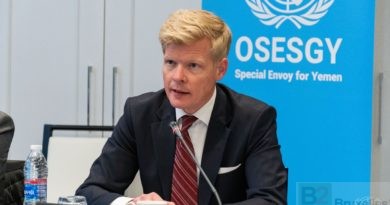What Europe wants to do to help Syria
(BRUSSELS2) What can the European Union do in the face of the Syrian crisis? This is the question that the joint communication from the Commission and the High Representative of the EU for Foreign Affairs attempts to answer. Entitled " Towards a comprehensive EU approach to the crisis in Syriae”, the document presented today (Monday 24 June) to the Ministers of Foreign Affairs tries to express concrete solutions (financial aid, reception of refugees, PNR, etc.) in order to respond to a crisis which has already caused more than " 93 dead and 000 million displaced in 3 years.
A robust European position
The Commission reiterates its support for the process initiated by Russia and the United States for the establishment of Geneva II and calls on Europeans to prepare a " substantial contribution and ensuring a robust European positione ". The EU is also committed to facilitating dialogue with the Syrian rebels, " The EU is ready to help the different components of the National Coalition for the Syrian Revolution and the opposition forces (SOC) to prepare the conference. The EU must continue its engagement with the SOC, while remaining open to cooperation with other moderate groups, and help them to establish themselves as credible interlocutors. » But with a reservation. " In its support (to the opposition), the EU should encourage more integration and ensure that human rights are respected. »
Support non-military aid delivery channels
Beyond the usual interlocutors and main " what are " the United States, Russia, Turkey, Saudi Arabia, Qatar, Egypt, the Gulf Cooperation Council and the Arab League ", the communication recognizes the importance of Iran in the settlement of the crisis, " Iran's role in the political and military equation will need to be recognized and addressed ". She also insists on the fact that despite Hezbollah's intervention in the fighting, Lebanon " must remain committed to the dissociation policy and fully respect it ". With regard to Turkey and the Gulf countries, the EU will support " the exploitation of available channels for the delivery of non-military aid ».
International Justice to Prosecute War Crimes
The communication also looks at the concerns about war crimes and crimes against humanity "and if these" are not sufficiently dealt with at the national level, the International Criminal Court must deal with the situation ". In order to provide evidence, the Commission wishes to reiterate " calls on the Syrian authorities to cooperate fully with the commission of inquiry, including granting it full, immediate and unimpeded access to Syrian territory. In opposition-controlled areas, the commission of inquiry should also be allowed to conduct its work unimpeded ».
Adjustment of penalties
The EU also wants to develop more flexibility in the application of sanctions in order to make life easier for local populations (maintenance of basic services, reconstruction, restoration of normal economic activity, etc.). " Work is underway to ensure effective implementation and to identify other possible exemptions for the benefit of the Syrian people. ". A work already started that can be continued. " Exemptions may be granted by the competent national authorities of the Member States with economic measures in the oil, gas and banking sectors” with consultation of the opposition in “the authorization procedurenot ".
Regarding weapons, the rule is clear: From 1 June, the possible delivery of arms to Syria will be subject to national policies under strict conditions, as defined in the Council declaration adopted on 27 May. »
Enable investigation of chemical weapons
On chemical weapons, despite mounting evidence, the EU is seeking to strengthen cooperation. " The EU is currently examining possible options for enhancing coordination and cooperation which could be explored with EU Member States, relevant international bodies and strategic partners. Recent contacts with the US administration aimed at increasing EU / US coordination in the CBRN field (chemical, biological, radiological materials, etc.). "" The EU will continue to urge Syria to accede to the Chemical Weapons Convention and to ratify the Biological Weapons Convention. »
A more welcoming Europe for refugees
Between April 2011 and the end of 2012, some 32 people, claiming to be Syrian nationals, applied for protection in the EU. In 000 they would already be nearly 2013 according to the communication. The EU asks that the consensus which seems to reign on the non-return of Syrian immigrants continue and that the Member States respond positively to the appeal launched by the High Commissioner for Refugees (UNHCR) which " called, in a letter addressed to the Commission and the Member States, for the humanitarian admission of 10.000 Syrian refugees from countries in the Middle East and North Africa and the resettlement of 2.000 additional nationals, mainly particularly vulnerable refugees, including including serious medical cases and people with disabilities ».
She also asks for facilitation in obtaining visas for Syrians " who have family members present in the EU, and also to admit any Syrians who arrive at the external borders of the Union » . " It is not appropriate to add Syria to the common list of countries subject to airport transit visas, as requested by some Member States ". It wants to facilitate the assessment of asylum applications from Syrian refugees.
A regional protection program
The Commission announces the put in place a regional protection program which should be operational by the end of 2013 ". It would be endowed with 13,2 million euros (10 million from the European budget + 3,2 million from the Member States) with the aim of " strengthen the long-term capacity of countries neighboring Syria to help them deal with refugees ". This program will include both a strong protection component, such as registration, capacity building for the administration, advocacy actions for the direct benefit of refugees, for example by improving access to certain socio-economic rights such as education or health ».
Preventing radicalization and countering foreign fighters
We know that Member States and institutions have been considering the issue of radicalization and foreign fighters for several weeks. The EU wants to multiply the initiatives and actions of "counter-narrative" within the framework work undertaken by the Commission with the EU Radicalization Awareness Network ". It also insists on better use of the Schengen II system. in order to better control the movements of foreign fighters ". The Commission also wants to work towards the adoption of a PNR system which aims to register the names of EU passengers and use the Terrorist Financing Tracking Program (TFTP).
Read also:
- The “lone wolf” phenomenon
- Reviewing the European counter-terrorism strategy
- A battle plan against the Europeans who left to fight in Syria
EU plans Syria according to
« The EU has started planning for the post-conflict era ". The Commission wants to see beyond the crisis and thinks about the aftermath in the areas of peace, security, reconstruction, rehabilitation, elections, justice... The EU assesses “ thanks to satellite imagery, (…) the damage to estimate the potential costs of reconstruction ". " In 2014 and beyond, the EU stands ready to mobilize more assistance (both humanitarian and non-humanitarian) if a transition takes place in 2013 or if the crisis continues. " It proposes the establishment of a Commission emanating from the services of the European Diplomatic Service " who will oversee and coordinate EU activities ».
Download the communication


